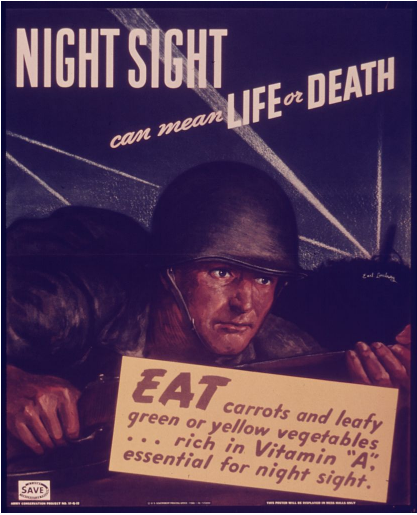Health myths are pervasive in our society. From familiar old wive’s tales, to diets that don’t actually work for the majority of dieters, it’s time to examine some common myths and whether there is any truth to them.
Table of Contents
MSG will give you a headache – and other scary symptoms
Sorry, Chinese food. MSG, or monosodium glutamate, often found in Chinese food as an “umami” meaty, savory flavor enhancer, gets a bad rap. Though anecdotal evidence purports MSG to cause headaches, nausea, heart palpitations, and numbness, the Mayo Clinic cites studies that have found no link between MSG and “Chinese Restaurant Syndrome.”1 Rather, it is in the category of “generally recognized as safe.”
The origin of this myth dates back to 1968,2 when Dr. Ho Man Kwok wrote a letter to the New England Journal of Medicine. He ruminated (without any scientific evidence) on MSG possibly being the cause behind his symptoms. He dismissed soy sauce as the cause. His letter went viral, and MSG has been given a bad name since.
High-fructose corn syrup is worse than sugar
A sweetener that is more common in the past few years, high-fructose corn syrup is now often used in sodas and fruit-flavored drinks. It’s also chemically similar to regular table sugar, but there’s controversy on whether the body handles them the same. However, there’s not enough evidence to say either way.1 In short, as far as science has been able to tell, it’s not any worse than sugar, and your safe bet is to cut down sugar of any kind, sweeteners included.
Gluten-free is the way to be
Pop quiz: Do you have Celiac disease or arthritis/joint pain? If you answered yes, skip to the next myth. If you answered no, your fancy gluten-free diet isn’t providing the benefits you might think. Gluten, found in grains such as wheat and barley, isn’t harmful to the average person. Celiac disease, an autoimmune disorder, attacks gluten, as the body thinks it harmful. Even 50 milligrams, or a crouton’s worth of gluten, can damage intestinal lining.3 Gluten-sensitivity, a serious condition which can generate similar symptoms, has been documented without Celiac disease, but is also rare.
If you have eaten your fair share of gluten with no symptoms, there is no need for a gluten-free diet – with one exception. Those with arthritis or chronic joint pain may want to reduce their gluten intake as it is known to cause inflammation.4
Swimming after eating will kill you
You are at a pool party, and decide it’s time to hop out of the pool and grab a few hot dogs. Your friend at the grill casually mentions that you should wait an hour after eating before you dive back in. You don’t follow his advice; with three hot dogs digesting in your stomach, you perform a cannonball back into the pool. While the other guests are lamenting getting wet from your splash, you feel it. Cramps. Horrible cramps. No one else at the party notices until it’s too late. You’re drowning, and the cramps are so bad, you can’t move. If only you had skipped the hot dogs or waited an hour, you’d still be alive.
Except this scenario has happened exactly zero times, according to Snopes.5 Instead, you have a higher chance of getting cramps from overexertion than from eating and swimming, though it is possible. The cramps are unlikely to be severe. Consider this: Going for a run after a meal won’t kill you, but if you push yourself too hard, you could find yourself vomiting in the bushes next to the sidewalk.
Microwaving Kills the Nutrients in Food
Microwaves make heating food easier, but will also destroy all the nutrients in the food, defeating the purpose of eating in the first place.
Not quite, according to Epicurious.6 In fact, because the microwave doesn’t use liquid to heat the food, some nutrients are enhanced. No matter how you cook your food, it will affect nutrients. The key is how long you cook it. The faster, the better – and microwaves are fast.
For example, cooking broccoli on the stove, in a pot of water, will cause nutrients to leach out into the water. Steaming in the microwave, however, will cause the vegetables to retain vitamins. Not only is this myth debunked, the truth is the exact opposite of the myth. According to the Harvard Medical School Family Health Guide, “The cooking method that best retains nutrients is one that cooks quickly, heats food for the shortest amount of time, and uses as little liquid as possible.7 Microwaving meets those criteria. Using the microwave with a small amount of water essentially steams food from the inside out. This reserves more vitamins and minerals than almost any other cooking method.”
Organic food is pesticide-free and more nutritious
Organic food is often more expensive than the non-organic equivalent. From what you know, there’s no pesticides used in organic farming, meaning less harmful chemicals entering your body, so you happily shell out the money.
Wrong. Farmers can’t use synthetic pesticides, but are, according to UC Berkeley, welcome to use naturally derived pesticides using equipment that has not been used to spray synthetic pesticides on land that has not been synthetically treated.8 Why did farmers stop using synthetic pesticides? Because about half of them were found to be carcinogenic, possibly causing cancer. But what of naturally derived pesticides? They are natural, and therefore better, right?
Wrong again. About half of naturally derived pesticides were also carcinogenic.8 There’s no real health benefit to organic produce; only a difference in pesticides that can be used.
Eating carrots gives you better vision, even at night
You will be forgiven for thinking carrots improve your vision, and give you the increased ability to see better at night. Carrots are rich in Beta-carotene, a type of Vitamin A, that is good for your eyes.9 However, this is more preventing deterioration than improving eyesight.
The myth that carrots improve eyesight was the product of British propaganda during World War II.10 The British were using the earliest forms of radar to intercept incoming bombers, but obviously couldn’t reveal the then-cutting edge technology to the Axis powers. They chalked up their amazing ability to pinpoint bombers in the dead of night on eating carrots, and the myth was born.
Everyone should drink eight glasses of water a day
If not eight glasses each day, how many? The answer is simple: when you are thirsty, drink water.11 If you aren’t thirsty, don’t drink water. Don’t force it. You won’t get dehydrated. If your urine is dark yellow, drink more. This is also true if you are very active, or live in a hot area.
Drinking too much could have serious consequences, including death.12 Water intoxication was in the limelight when Jennifer Strange died in 2007 during a radio contest to win a Nintendo Wii.13 The high amount of water dilutes sodium in your body, which causes the brain to swell and push against the skull. Nausea, vomiting, and weakness are lesser symptoms, but seizures, coma, and death can result from severe cases.
Cracking your knuckles gives you arthritis
Good news for those of you who constantly crack your knuckles: it doesn’t cause arthritis.14 A study, published in 2011 in the Journal of the American Board of Family Medicine, noted that of the 215 respondents, 18.1 percent of habitual knuckle-crackers had osteoarthritis, while 21.5 percent who did not habitually crack their knuckles suffered from osteoarthritis. In other words, buckling down, cracking your knuckles, and getting to work won’t cause arthritis.
Cold air, wet hair, sneezing and coughing will you fair
Did your grandma ever tell you to not go outside into the cold air after taking a shower, because your hair was wet and you would catch a cold? Did you ignore her? If so, good job; you know this myth isn’t true.
Going out in the cold won’t increase your chances of catching the common cold (which isn’t so common, but that’s for another list). And no, the cold will not affect your immune system, although a weakened immune system will make you more likely to catch a virus. The real reason you are catching a cold when the temperature is cold is because more people are indoors.15 When everyone is huddled inside, it’s easier for the virus to be transferred from person to person via a sneeze or someone blowing their nose. Your best bet is to wash your hands.
In a world of rumors, myths, and misconstrued facts, you can rest assured that these myths have been debunked. Be sure to tell your favorite debunked myths, health-related or not, in the comments section. Now stop sitting so close to the television and put on your VR goggles or you’ll go cross-eyed.
Sources:
1. http://www.mayoclinic.org/healthy-lifestyle/nutrition-and-healthy-eating/expert-answers/monosodium-glutamate/faq-20058196<
2. http://www.bbc.com/future/story/20151106-is-msg-as-bad-as-its-made-out-to-be<
3. http://www.health.harvard.edu/blog/going-gluten-free-just-because-heres-what-you-need-to-know-201302205916<
4. http://www.arthritis.org/living-with-arthritis/arthritis-diet/anti-inflammatory/gluten-free-diet.php<
5. http://www.snopes.com/oldwives/hourwait.asp<
6. http://www.epicurious.com/expert-advice/does-microwaving-your-vegetables-food-destroy-nutrients-vitamins-article<
7. http://www.health.harvard.edu/staying-healthy/microwave-cooking-and-nutrition<
8. https://www.ocf.berkeley.edu/~lhom/organictext.html<
9.. http://www.health.com/health/gallery/0,,20680738,00.html<
10. http://www.smithsonianmag.com/arts-culture/a-wwii-propaganda-campaign-popularized-the-myth-that-carrots-help-you-see-in-the-dark-28812484/?no-ist<
11. http://www.webmd.com/balance/ss/slideshow-10-health-myths-debunked<
12. https://www.scientificamerican.com/article/strange-but-true-drinking-too-much-water-can-kill/<
13. http://articles.latimes.com/2007/jan/14/local/me-water14<
14. http://www.jabfm.org/content/24/2/169.long<
15. http://www.livescience.com/32256-does-cold-weather-cause-colds.html<





